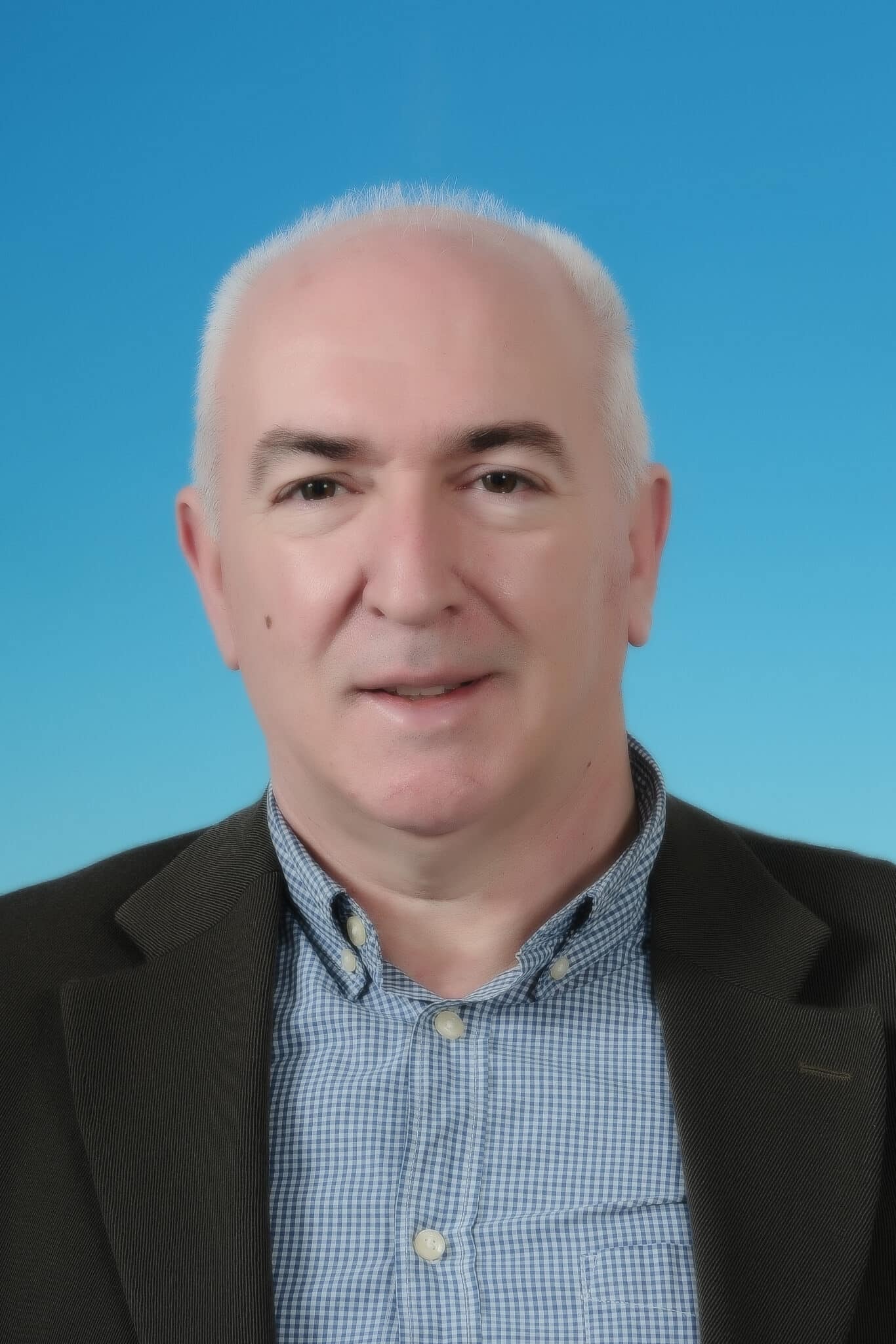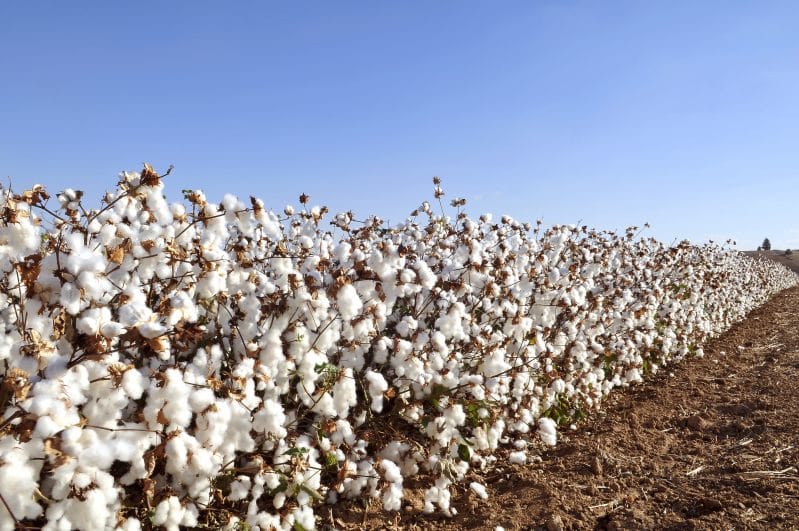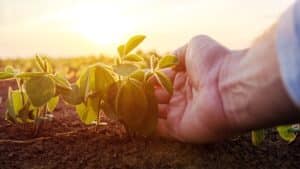Now that the dust is settling on the mega mergers and acquisitions, the seed world has one new major player added to the spectrum. Over the course of 2018, Bayer transferred most of its seed business to BASF, for the price of €7.4 billion, and in addition more than 4,500 employees joined BASF through the acquisition. European Seed dived into one of the crops that made the move: cotton. In a world where society demands seed companies to be evermore socially equitable, economically sustainable and environmentally responsible, a novel approach in cotton stands out trying to achieve all the above.
Athanasios Tsoutsas, (Cotton cluster Lead Greece, Turkey, Spain, Kazakhstan and Azerbaijan) from BASF Greece says it was only after a few months that he joined the company that BASF acquired a large stake in the seed sector, but it wasn’t hard for the employees to make the transition.
“Even if BASF was not a seed company, the company has a seed mindset because the employees are very closely related to and have always worked with important plant breeding companies due to the Clearfield® and Clearfield® plus production system (CL) technology,” says Tsoutsas. “This technology has provided an opportunity for employees to understand the importance of genetic material and the numerous possibilities of seed technology for the future in agriculture. BASF’s top management knew that being a seed company would enhance its offer and thus proceeded with this very significant acquisition in order to have more agricultural solutions to offer the grower.”
Tsoutsas says there are many exciting traits currently in the BASF pipeline. In cotton, he says the fibres have been examined for many years and bring advanced quality characteristics such as the length, the strength and the low short fibre ratio, as well as the maximum lint yield.
“Our FiberMax® varieties are well known and highly recognizable for their quality characteristics high Gin Turn Out (GTO) in the global cotton ginning and spinning industry, making the fiber ideal for specialty garment products, such as fine count sheeting, shirting, women’s wear and luxury goods.
“In my view, existing Clearfield technology and its enrichment with additional traits, as well as its extension to other crops, will be an important field of research and innovation by our company.”
Working in the Greek Sector
Tsoutsas says they often use the expression that “seed is the most important agricultural input” and he believes this has proved true during the economic crisis.
“The seed market has resisted the crisis well, since seed essentially starts the agricultural production. All the agricultural companies involved have helped, through applied policies by continuing supply of our agricultural producers with the necessary inputs for their production.”
He says mainly financial support tools have been used to support the production process in their country. In fact, he says the crisis has positively helped their country handle many issues on a more rational basis – something that has often been said yet is important to underline.
“I strongly believe in the rationalization of any issue sooner or later. However, in the case of Greece this rationalization has arrived later than sooner. The crisis has mobilized the Greeks at all levels. Our ancestors used to say that “we need to convince even the Gods”. These days, this is not necessary!”
Tsoutsas believes in the rationalization of any issue sooner or later. However, in the case of Greece this rationalization had arrived later than sooner. He says the crisis has mobilized the Greeks at all levels, and as their ancestors used to say: “we need to convince even the Gods”. These days, he says, this is not necessary.
Throughout the crisis, he says the rationale for quality, differentiation and branding emerged even more strongly than before. Although cotton and olive oil are the top export products from Greece, there is a very low level of processing, especially for cotton, accompanied by the absence of branding. A way of surviving the crisis is to analyse these two concepts looking at quality and capturing the value in all agricultural products.
“I would say today that this experience of capturing value in agriculture is now filtering through all sectors of Greek society.”
Standing Out in Greece
All breeding programs from seed companies face the same challenges related to climate change, resistance to various infestations, environmental and consumer demands.

All the above apply to cotton since new germplasm must resist to stress conditions created by the changing environment. Such breeding programs aim to reach maximum yield levels by making full use of inputs, through limited environmental losses. In addition, the quantity of natural resources used such as water and inputs used by the grower and other players in the value chain should be transparent so that the final consumer is delivered with an environmentally friendly product. This is a reason why a plant breeder needs to have a 360° vision and a solid knowledge of environmental issues to answer such challenges.
“The FiberMax® breeding program, that has existed for more than 20 years in Europe, has succeeded in increasing the production and even revenue for Greek cotton producers,” says Tsoutsas. “These varieties are a reference for the entire European cotton market and a comparable measure for each new genetic material regarding key performance criteria and fibre quality.”
In terms of loyalty, Tsoutsas says both the producer and the consumer are loyal to a product when convinced there are benefits. He says the FiberMax® cotton seed varieties have increased growers’ production and improved their financial performance.
“These last two decades have seen the establishment of a long and honest relationship based on mutual respect and trust. We always try to provide the best product, distinctly differentiated and recognizable.”
Tsoutsas states it is more than just being the provider of high-quality seeds for cotton growers. BASF started to partner with the value chain and worked with the ginning industry and reached out to the spinning and knitting industry. Through targeted pilot projects, he says they have shown the advantages of our seed varieties at each stage of cotton processing:
- The ginners recognized the difference in fibre yield.
- The spinners understood the possibility of producing finer yarn (Ne number).
- The knitters were able to still produce good fabrics – the proof that less inputs can result in the same quality fabric.
- The designers are experimenting by using sustainable cotton in their fashion items. In 2017 we collaborated with a Greek fashion designer, Ioanna Kourbela, for a pilot garment production.
Cotton on the Runway
After 20 years of experience, he says their seed varieties are considered by many cotton growers as the reference point for cotton for their high and stable performance, the adaptation to local conditions and the quality of the produced product. Approximately 50 new cotton lines are introduced each year – just like a fashion show – in Greece for experimentation and final selection of new varieties. Each new variety has been tested several times in various Greek conditions before being entrusted to growers. The Greek growers visit their trials and find out the future benefits of new seed varieties and methodically review the important decision of which variety to use that season.
Greece has been selected by BASF as a country of choice and maintenance of non-genetically modified cotton. Greece can produce certified seed of any FiberMax® variety and export to any destination that is requested.
“In addition, we systematically inform the Greek grower during our regular meetings about the cultivation and the requirements of each variety as well as how to improve and adapt his management to modern production protocols. We emphasize the advantages of production with sustainable farming practices with an extensive protocol similar to that of BCI (Better Cotton Initiative), so in combination with the FiberMax®seeds we can underline that the cotton has been produced sustainably.
“We do not only provide ‘seeds to seed’ for the cotton grower, we also have a specialized team available to provide management and negotiation advice to the grower.”
Lastly, he says they have harnessed all the above with the cotton production and certification program through sustainable farming practices and called it the “Certified Sustainable FiberMax” (CSF) program.
“The world is changing and all of us should be more customer centric. ‘The shelf now aligns the field’.
“The informed future consumer will want to know that the product he has chosen to wear next to his skin, has a production philosophy that fits his own principles and values. He needs to know that the product was produced with sustainable agricultural practices.
Tsoutsas says the major clothing companies are aware of this and have responded. Wherever feasible, they have adapted to these demands by communicating how they supply the raw material, where and how they produce and how they handle the cloth transformation.
Reduction in Crop Protection Products
BASF has a wide range of cotton products (herbicides, insecticides, growth regulators and defoliants) included in the agricultural solution proposal of cotton production through sustainable farming practices. Through the CSF program of sustainable farming practice, they follow an intensive protocol seeking rational and efficient management using such products on every level.
Through a program of recording and highlighting best practices, he says BASF strives to identify points for improvement in everyday farming practice, so the producer perceives and embraces practices of continuous self-improvement of his production process. Improvement results in better, more cost-effective management of revenue, improved production, and an increase of economic outcomes.
“Our proposal is for sustainable practices for the producer, the environment, so that future generations can also find natural resources for their own continuation of the production process.”
[tweetshare tweet=”The world is increasingly dependent on our ability to develop and maintain sustainable agriculture. It is our role to help farmers grow cotton safely, use natural resources efficiently and protect the land that we all hold in trust for future generations.” username=”EuropeanSeed”]
‘Creating Chemistry’
The slogan of the company is ‘BASF creates Chemistry’. How do they tackle any potential concerns about being a chemical company?
“’We create chemistry for a sustainable future’ is our company’s purpose,” says Tsoutsas. “Creating chemistry means, of course, the scientific level, and more importantly the relationship level, too – with our employees, customers, society and other stakeholders.”
The world is changing more rapidly than ever before, driven by demographic change and new digital technologies. He says their customers in different industries and regions face diverse social and environmental challenges due to limited natural resources and increasing consumer demands. Chemistry is key to solving many of these challenges. “By combining our unique expertise with our customers’ competence, we jointly develop profitable, innovative and responsible solutions for these global trends.
“In addition, we have committed ourselves to growing production volumes without adding further CO2emissions until 2030. This means we will decouple greenhouse gas emissions from organic growth. We have also defined targets for a sustainable product portfolio, responsible procurement and engaged employees. Safety for people and the environment, inclusion of diversity and water management will remain a top priority. In this way, we want to steer our business into a sustainable future and, at the same time, contribute to the implementation of the United Nations’ Sustainable Development Goals.”
[tweetshare tweet=”BASF’s purpose is “We create chemistry for a sustainable future”.” username=”EuropeanSeed”]
At the grower level, Tsoutsas believes they are trying to change the production process of cotton, to highlight the importance and value of sustainable farming practices. In short, do more with less resources.
At country level, he says they aim to make Greek quality cotton a reference of excellent quality and high value fibre, attractive to the global clothing industry and top end market brands.
“Cotton is a very important crop globally and the largest source of a sustainable natural fibre: – a new dynamic model of production and management at all levels is being introduced by many partners. Only in this way can the sector meet current requirements and give a sustainable revenue while at the same time reducing the carbon footprint at each step of the cotton production. So, initiatives like Certified Sustainable FiberMax®should be lauded as a best practice in the cotton industry.”
[tweetshare tweet=”We aim to make Greek quality cotton a reference of excellent quality and high value fibre.” username=”EuropeanSeed”]











